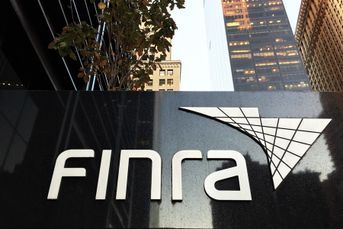Miller to CEOs: Time to shape up
With Enron Corp. in shambles and its outside auditor under investigation, one of the nation’s top fund managers…
With Enron Corp. in shambles and its outside auditor under investigation, one of the nation’s top fund managers says it’s time to hold chief executives more accountable.
Bill Miller, CEO of Legg Mason Funds Management Inc. in Baltimore, says he is forming a coalition of investors to pressure companies to justify such policies as the use of lucrative stock options.
“If options are compensation, companies have to adjust earnings, and compensation has to be reasonable,” he says.
Mr. Miller also wants to make sure executives are fairly reporting the potential returns – or shortfalls – of their pension funds.
Mr. Miller’s Legg Mason Value Trust Fund has beaten the Standard & Poor’s 500 stock index for 10 years straight and is on course to top the benchmark again this year.
Since his $8.9 billion fund is a significant shareholder in many companies, Mr. Miller carries considerable clout in boardrooms.
Mr. Miller, in New York last week for Legg’s annual economic outlook briefing, revealed his plans in an off-the-cuff conversation after his presentation.
Mr. Miller says that the group of investors he already has assembled is considering placing advertisements in such publications as The Wall Street Journal.
The ads would list corporate governance best practices. At the end of the list, he says, the ads would likely state: “We believe these constitute best practices. If you don’t have it, we won’t vote” in favor of items such as options plans.
He declined to name the companies he was targeting. He also refused to name the other potential investors and money managers in the group.
Option mania
The issue of options, which are not reported on a company’s income statement, was certainly crucial before the dot-com crash, says Jim Paulsen, the Minneapolis-based chief investment officer of Wells Capital Management Inc.
The importance of options may have recently decreased somewhat, Mr. Paulsen says.
Options, however, are “never going to go away. They’ll be used more and more because of the ’90s,” he says.
The Financial Accounting Standards Board, the independent group that creates accounting rules, along with other groups, is likely going to try to get options onto a company’s balance sheet, he says.
With Joseph Berardino, chief executive of Arthur Andersen LLP, testifying before Congress this week about the Enron debacle, corporate governance and disclosure are on the minds of investors.
Securities and Exchange Commission Chairman Harvey Pitt disclosed last week that his agency is “investigating Enron’s meltdown.”
During the period when Enron is accused of cooking its books, the company’s chief executive, Kenneth Lay, was cashing in more than $180 million in stock options.
“Even before the Enron situation, we were working to improve and modernize our disclosure system,” he wrote in an opinion column in the Wall Street Journal.
Clear and informative financial statements were part of Mr. Pitt’s list of “sensible” approaches to the problem.
So far, Mr. Miller says, he has written to only one company about its stock option plans. Declining to name the company, he says it responded properly
He says he offered the company two options: “A company has to believe in one of two statements: The shareholder deserves a rate of return before a portion of future returns is transferred to management and employees. Or, the shareholder deserves no rate of return.”
flexing his muscle
In his role as a top shareholder, Mr. Miller has recently voted against option plans at some companies. He says that the corporate governance plan of Campbell Soup Co. in Camden, N.J., was a model.
In its annual proxy statement, the company publishes a list of standards. This year’s statement has 20 points under the headings “board performance,” “board composition,” “business operations,” “executive compensation” and “shareowners.”
Another balance sheet item – pension assumptions – has also been drawing Mr. Miller’s attention.
During the big run-up in stocks in the 1990s, pension funds often became profit centers for corporations. The returns were so high that many of the funds did not have to make contributions to their plans.
With the market down for the past two years, that no longer holds true, says Mr. Miller.
But assumptions are still too high, with corporations commonly predicting a return of about 10%.
Corporations contribute less to their pension plans with “aggressive” assumptions, he says. “We’ll be talking to companies about lowering that,” he adds.
As for stock options, Mr. Miller says the fact that they are being used as regular compensation for executives and other employees is a significant problem. He believes they are better used as an incentive.
Technology companies in the bull market of the 1990s commonly used stock options to lure talent.
Such potentially lucrative plans, however, do not often serve in the best interests of the shareholder, Mr. Miller maintains.
Companies such as Microsoft Corp. of Redmond, Wash., which turned many of its employees into millionaires with stock options, are the exception, not the rule, he says.
“Engineers making $50 million is not reasonable,” he says.
Learn more about reprints and licensing for this article.








